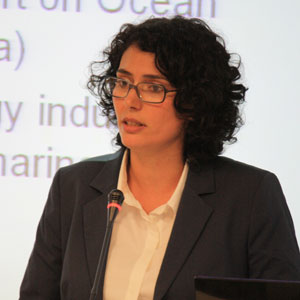Information
Venue
Start
End
24 August 2012 | CIL Seminar Series
The International Law of Offshore Constructions: Cutting Through Fragmented Regimes Towards Better Governance
Introduction

Offshore constructions rise in numbers and importance. They promise high economic and scientific benefits but also increase risks of accidents and environmental damage. For instance, other than potential oil spills, threats for the environment may derive from offshore constructions generally. For example, the 2011 Report of the UN Secretary General on Oceans affairs and Law of the Sea formulates pointedly that the “majority of marine debris with sea- or ocean-based sources comes from oceangoing ships, offshore oil and gas platforms, drilling rigs and aquaculture installations” (emphasis added). The incident of the offshore oil rig “Deepwater Horizon” in the Gulf of Mexico poignantly illustrates the limits of the existing legal framework, which is fragmented along the lines of different geographical areas, different sectors of activities, and, notably, different fields of law.
The research project intends to fill this gap and to contribute to better ocean governance. More specifically, it aims at clarifying the international legal framework that regulates the life of offshore constructions in order to provide useful legal tools to both private investors and policy makers. The research falls into three main steps. First, the analysis of multilateral treaties that do already contain obligations in the fields of environmental protection as well as maritime safety and security aims at determining what kind of international legal framework, if any, is applicable to offshore installations and structures. In a second step, the research focuses on states practice by analysing the plethora of bilateral agreements which have been concluded for the exploitation of transboundary resources or for the exploitation of resources in disputed areas. Thirdly, the research places particular emphasis on the role and the practice of the EU and its member states. The EU context is of particular interest because of its normative stratification.
About the Speaker
Dr Seline Trevisanut is a Marie Curie Fellow at the Netherlands Institute for the Law of the Sea (NILOS) working on her research project “The International Law of Offshore Construction: Cutting Through Fragmented Regimes Towards Better Governance”. Before joining NILOS, Seline conducted research and taught in many academic institutions including Columbia University, the European University Institute, the Max Planck Institute for Comparative Public Law and International Law, and the Universities of Cagliari, Milan and Trento. She holds a law degree from the University Paris 1 Panthéon-Sorbonne (Maitrise en Droit) and a PhD in international law from the University of Milan. Her publications include a monograph on “Irregular Migration by Sea in International Law and EU Law” (in Italian) and several articles in international peer reviewed journals, especially on the law of the sea.
Presentation
To download Dr Trevisanut’s presentation in PDF format, click here.

